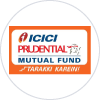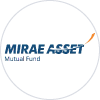Scheme type
AMC
Risk appetite
Rating
Returns

"Bank Of India Credit Risk Fund - Regular Plan"
Min. investment
Rs. 5000.0
5 Year Returns
27.15%

"Aditya Birla Sun Life Medium Term Plan - Growth - Regular Plan"
Min. investment
Rs. 1000.0
5 Year Returns
12.26%

"DSP Credit Risk Fund - Regular Plan -Growth"
Min. investment
Rs. 100.0
5 Year Returns
10.99%

"Bank Of India Short Term Income Fund-Regular Plan- Growth"
Min. investment
Rs. 1000.0
5 Year Returns
10.18%

"Aditya Birla Sun Life Credit Risk Fund - Regular Plan - Growth"
Min. investment
Rs. 100.0
5 Year Returns
9.83%

"UTI Credit Risk Fund - Regular Plan - Growth Option"
Min. investment
Rs. 500.0
5 Year Returns
9.39%

"Baroda BNP Paribas Credit Risk Fund -Regular-Growth Option"
Min. investment
Rs. 500.0
5 Year Returns
9.31%

"Nippon India Medium Duration Fund - Growth Option"
Min. investment
Rs. 100.0
5 Year Returns
8.89%

"HSBC Credit Risk Fund - Regular Growth"
Min. investment
Rs. 1000.0
5 Year Returns
8.54%

"UTI Dynamic Bond Fund - Regular Plan - Growth Option"
Min. investment
Rs. 500.0
5 Year Returns
8.47%

"UTI Medium To Long Duration Fund- Regular Plan - Growth"
Min. investment
Rs. 500.0
5 Year Returns
8.03%

"ICICI Prudential Credit Risk Fund - Growth"
Min. investment
Rs. 100.0
5 Year Returns
7.35%








































Frequently asked questions
What are Debt mutual funds?
Debt funds invest in all kinds of debt which can also be considered as lending money to the entity issuing the fund, such as treasury-bills, government securities, commercial paper, certificates of deposits, money market instruments, securitised debt, and corporate bonds. These funds have a fixed maturity date and interest rate that the buyers could earn till the maturity of the security. Debt funds invest in a variety of securities, based on their credit ratings. A security’s credit rating signifies the risk of default in disbursing the returns that the debt instrument issuer promised.
Are debt funds tax free?
Short-term capital gains (if the units are sold before 36 months) in debt mutual funds are taxed as per applicable tax rate of the investor. Therefore, if your tax rate is 30% then short-term capital gains tax on debt fund is 30% + 4% cess. Long-term capital gains (if the units are sold after 36 months) in debt fund are taxed at 20% with indexation. Also, Dividends received by investors are added to their overall income and taxed at the income tax slab rate they fall under.
Are debt funds risky?
Debt funds can carry varying levels of risk depending on factors like credit quality, interest rate movements, and fund strategy.
Which debt funds are safest?
Among debt funds, those investing in government securities and top-rated corporate bonds are generally considered the safest options with lower credit risk.
Which debt funds are safe?
Government securities and top-rated corporate bonds are generally considered safer options among debt funds.
How do I choose a debt fund?
Choose a debt fund based on your financial goals, risk tolerance, and investment horizon. Assess factors like fund duration, credit quality, and past performance.
Do debt funds pay dividends?
Yes, debt funds can pay dividends, allowing investors to receive periodic payouts from the fund's income.
Where do debt funds invest my money?
Debt funds invest in fixed-income instruments like government bonds, corporate bonds, and money market securities.
Do debt funds have a lock-in period?
Most debt funds in India do not have a lock-in period, offering flexibility for investors.
Powered by Bajaj Finserv Direct Limited






